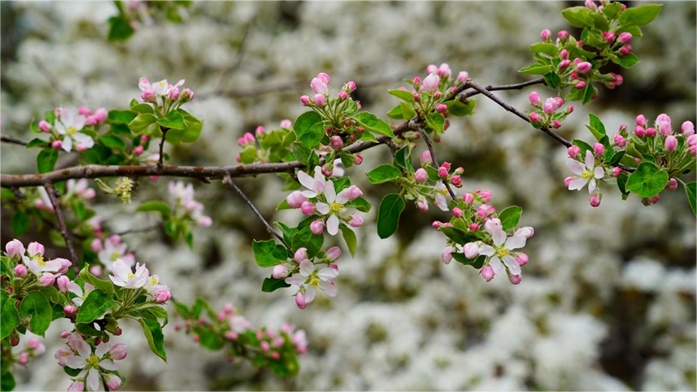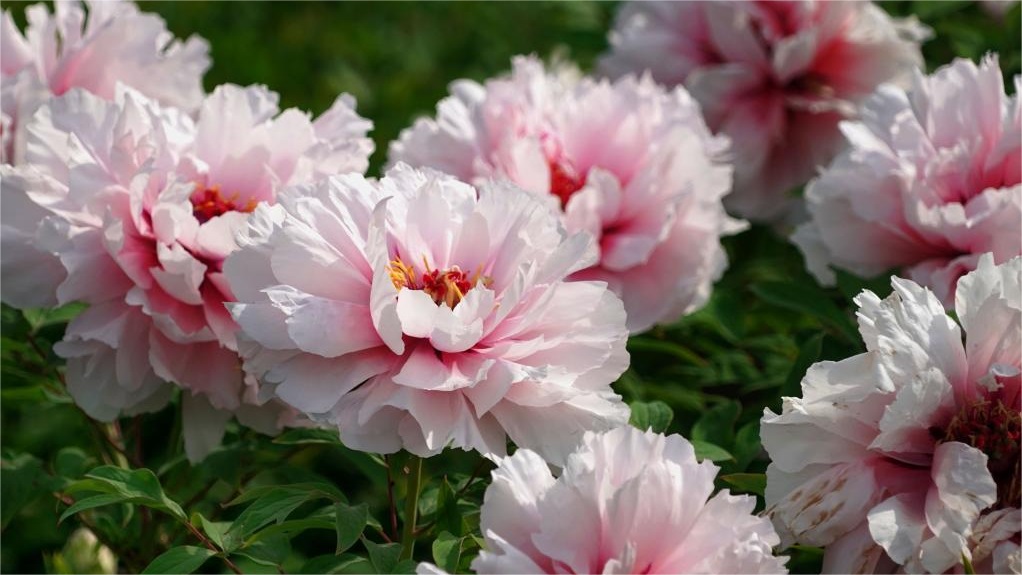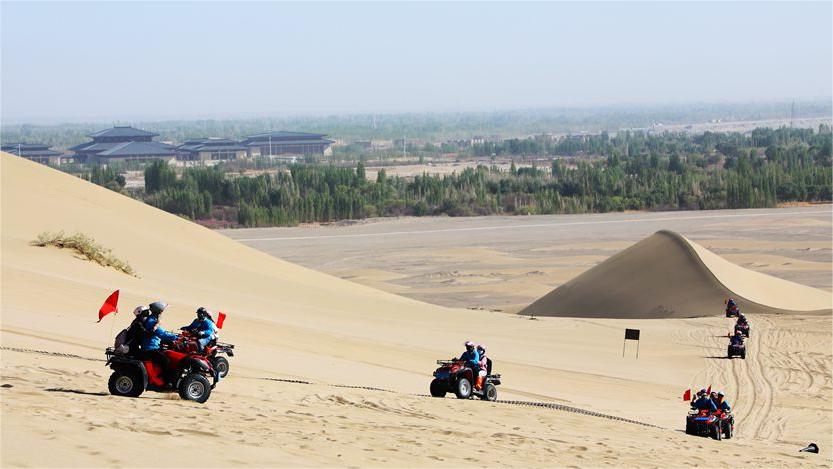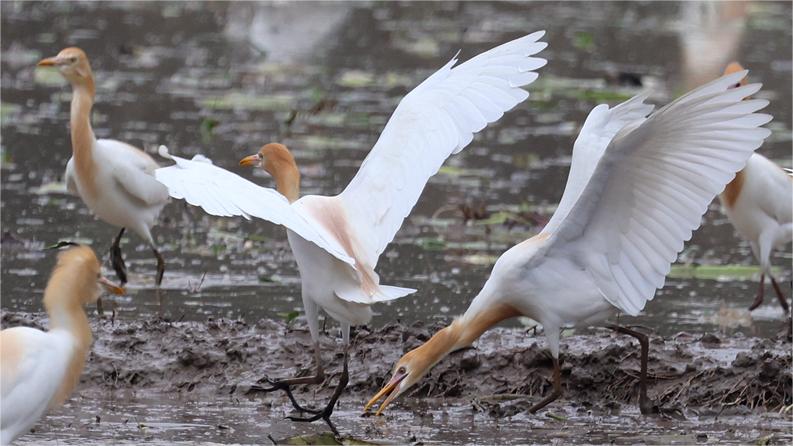Landslide victory of Maldives ruling party injects more certainty into China-Maldives ties
China extended its congratulations on Monday on the "landslide" victory secured by Maldives President Mohamed Muizzu's People's National Congress (PNC), which some Chinese experts said is beneficial for the smooth implementation of the current domestic and foreign policies of the Muizzu administration. It will contribute positively to the future development of Maldives-China ties by injecting more certainty into bilateral relation, they noted.
However, some Western and Indian media have been closely watching this election and hyping up China's increasing influence in the Indo-Pacific region, which is driven by their "sour grapes" mentality, some experts noted. In fact, this election result indicated the Maldives' greater need for economic development rather than getting entangled in geopolitical conflicts, they said.
Over 200,000 Maldivians voted in the parliamentary elections held on Sunday, in which 326 candidates contested 93 seats in the next parliamentary assembly, including six new seats, local news site Sun Online reported.
Preliminary results show that PNC won 68 seats, more than two-thirds of the Maldives parliament.
The election drew widespread attention in the Western and Indian media. Reuters said Muizzu, elected last year, has pledged to end the country's "India First" policy, putting relations with New Delhi under strain.
Indian media also pointed out that the vote is seen as "a crucial test" for Muizzu's plan to press ahead with closer economic and defense cooperation with China, and diverge from traditional ally India.
The Maldivian Democratic Party, led by former President Ibrahim Mohamed Solih, who is seen as pro-India, held 65 seats in the previous Parliament but won only 15 seats, the AP reported, citing Maldives news site Mihaaru.com.
Strengthened presidential mandate
"Before the election, the opposition party controlled the parliament, so Muizzu's presidency faced considerable pressures and challenges," Qian Feng, director of the research department at the National Strategy Institute at Tsinghua University, told the Global Times on Monday.
But such an overwhelming electoral victory significantly strengthens Muizzu's presidential mandate, which is beneficial for the smooth implementation of his current domestic and foreign policies. It also contributes positively to the further development of Maldives-China relations by injecting certainty into this partnership, Qian said.
We congratulate the Maldives on the successful parliamentary elections and fully respect the choice of the Maldivian people, Wang Wenbin, spokesperson of the Chinese Foreign Ministry, told a press conference on Monday.
"China stands ready to work with the Maldives to carry forward traditional friendship, expand exchanges and cooperation in various fields, deepen China-Maldives comprehensive strategic cooperative partnership and speed up the building of a China-Maldives community with a shared future to deliver greater benefits to our two peoples," Wang said.
"This election in the Maldives indicates its greater need for economic development rather than getting entangled in so-called geopolitical conflicts," Tian Guangqiang, an assistant research fellow with the National Institute of International Strategy at the Chinese Academy of Social Sciences, told the Global Times on Monday.
As a small nation in terms of size and population, the Maldives' primary concerns are maintaining independence and promoting economic growth, and Muizzu's campaign focused heavily on economic development, Tian noted.
"India's military presence in the Maldives poses a threat to the country's independence and sovereignty… This election reflects public support for the president's development agenda," Tian said.
Muizzu has reportedly declared that no Indian military personnel, including those in civilian attire, will be permitted in his country after May 10, according to media reports.
Muizzu has also accused his predecessor President Ibrahim Mohamed Solih of acting on directives from a foreign ambassador without specifying the country or diplomat involved, some Indian media reported in March.
In fact, President Muizzu's stance is quite clear: he aims to maintain good relations with both China and India, Liu Zongyi, secretary-general of the Research Center for China-South Asia Cooperation at the Shanghai Institutes for International Studies, told the Global Times on Monday. His hope is to implement a balanced policy without choosing sides, he added.
"However, India wants the Maldives to pick a side. While Indians might view Muizzu and the will of the Maldivian people through the lens of geostrategy and political competition, the Maldivians are primarily focused on achieving development," Liu said.
Popular sentiment
The election result also suggested that Maldivian people believe Muizzu's policies are correct, Liu said, noting that it also reflects the popular sentiment.
In the eyes of many voters, the current development of Maldives-China relations not only aligns with the national interests of the Maldives but also with the personal interests of its citizens, Qian noted. "Thus, their choice to support this through their votes serves as a strong rebuttal to the recent criticisms of Muizzu by the opposition in the Maldives," Qian said.
As some Indian media suggested that the Maldives is moving away from India, Chinese experts pointed out that New Delhi should reflect on itself for the reason behind the cooling ties, which is mainly due to India's long-standing perception of the Maldives as being in its so-called "sphere of influence" and "diplomatic backyard," exhibiting a patronizing attitude in its dealings with the country.
However, due to the Maldives' geographical proximity to India and historical ties in trade, culture, and human interactions, the Maldives will not actively seek to sabotage ties with India, Qian said, noting that the relationship can still be maintained if India undertakes a deeper review of its past policies and treats the Maldives as an equal, avoiding the perspective of major power games when viewing Maldives-China relations.
Photos
Related Stories
- Commentary: China-Maldives cooperation at new starting point
- China, Maldives to deepen exchanges, cooperation in various fields
- Trade between China, Maldives up 75.2 pct in Jan-Nov 2023
- Highlights of China-Maldives cooperation
- India's COVID-19 tally rises to 34,666,241
- Flames, smoke continue to emerge from massive landfill in Delhi
Copyright © 2024 People's Daily Online. All Rights Reserved.









